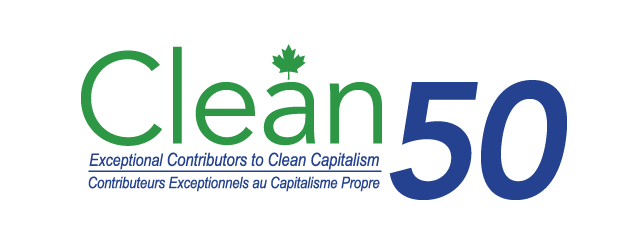Changes to eligibility for Canada’s Clean50 Awards for 2023: no more “cover” for bad actors

As the steward and primary steward of the Canada’s Clean50 Awards, Delta Management Group is no longer prepared to offer “cover” – or provide positive publicity to organizations whose “good” – i.e. climate-positive – activities are overshadowed by their climate-negative or environment-negative activities.
We’ve seen major financial institutions actually grow their exposure to fossil fuel extraction activities. We know without question that increased oil extraction, in pursuit of profit by all concerned, will ultimately lead to to climate impacts that will dramatically and negatively impact humanity.
And so we are no longer prepared to endorse such organizations in any way, even when some of their employees do remarkable work.
We’ve seen clothing companies and retailers actively engaging in green washing – for example, declaring their clothing lines come from sustainable practices when in fact the fabric was manufactured by slave labour in China. A retailer claiming that they achieved a 10% decrease in GHG emissions from transportation – because they increased the size of their transport trailers from 50 feet long to 55. We’ve seen banks claim to support the Paris Accord – now being sued because their funding activities demonstrate that’s untrue.
Organizations who, somehow, still lack any kind of a plan to increase diversity, equity and inclusion in their workplace.
Oil companies talking about carbon intensity and unproven CCUS, instead of just cutting emissions and working towards a just transition.
So… enough!
We’re no longer prepared to recognize people or projects – even good people doing great things – whose employers are making things worse in some significant way
Clean50 Founder and Executive Director, Gavin Pitchford
If a nominee’s employer meets any of the following criteria, regardless of the good the individual is (or may be) doing, or that some part of the larger organization is or may be doing, we will no longer consider the employee eligible for a Clean50 Award until either they change employers – or their employer changes the objectionable behaviour.
While we appreciate that very few individual employees are responsible for the policies about which we are concerned, we are no longer prepared to provide “cover” to organizations who may be doing good on one hand – but actively contributing to climate change on the other.
The following organizations are impacted by this policy change:
- Financial Institutions: excluding lending or investment tied to a “green transition”, if the organization has increased their exposure to the fossil fuel industry through either lending or by way of investments
- Retail / Consumer facing organizations: Any organization we determine is actively involved in deliberate greenwashing in their public communications. As an example, claiming to produce clothing that is “sustainable fashion” while selling fast fashion, and sourcing fabrics produced by slave labour in China.
- Organizations of over 50 employees who lack credible and public DEI policies (Diversity, Equity & Inclusion) and / or who have failed to act in a meaningful way to ensure employees and prospective employees are diverse, and are treated equitably and inclusively.
- Extractors of Fossil Fuels whose total GHGs have increased, whose carbon intensity has increased, or who lack a credible plan to cut GHGs by at least 50% by 2030, and to net-zero by 2050 or sooner, that does NOT rely extensively on unproven CCUS.
The Clean50 does not have the resources to thoroughly investigate each organization whose employees are nominated, but upon completion of a preliminary investigation of finalists, we will advise nominees of any concerns we identify, and provide them the opportunity to respond and be heard. Our decisions will be based on the “balance of probabilities” test, and will also consider the likelihood that naming the individual would be likely to harm the reputation of the Clean50, and reflect poorly on other honourees.
We urge the employees of organizations likely to trigger a concern to make sure they are prepared to provide the data needed to respond to those concerns before completing their submissions.














